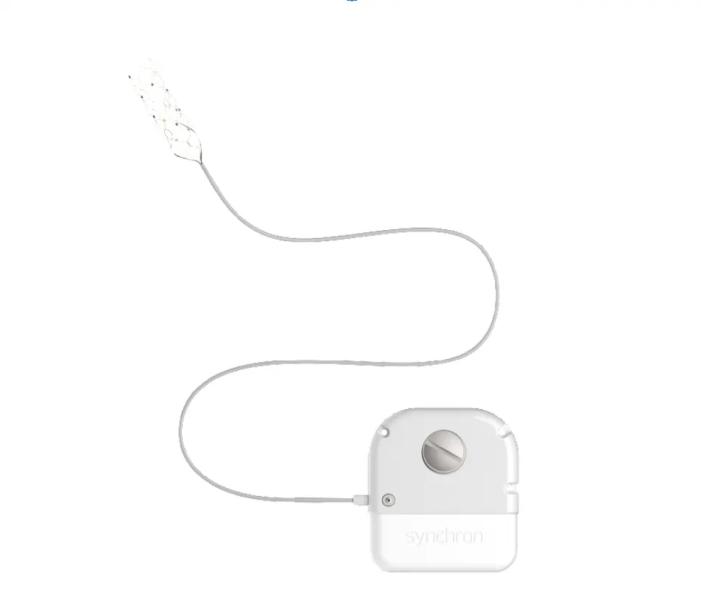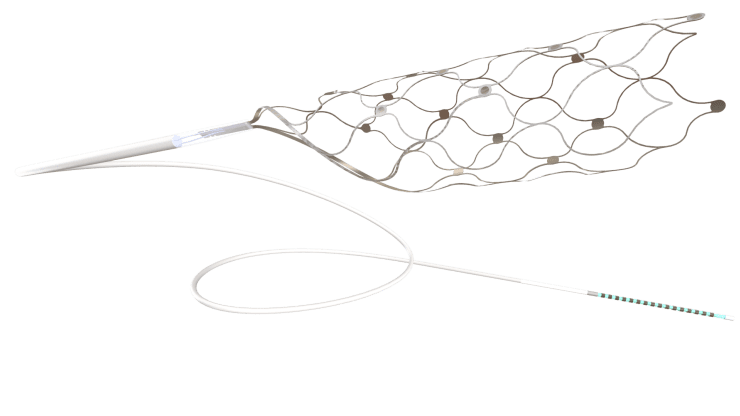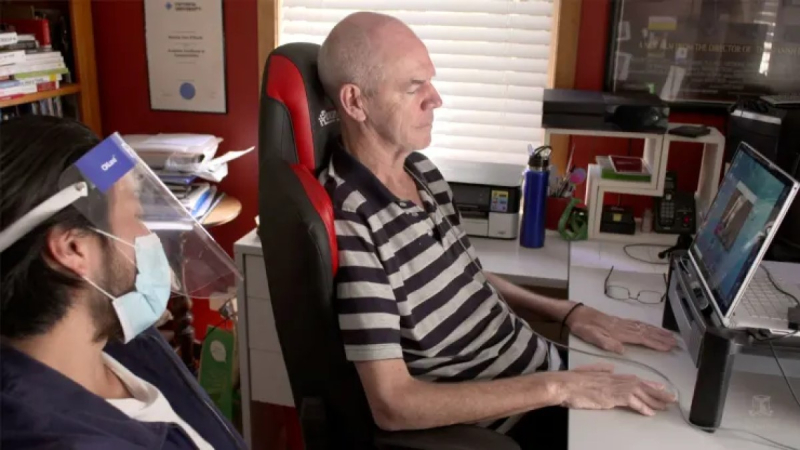The Technology section is published with the support of Favbet Tech

The startup has developed a secure interface for communication “with the power of thought”, which is implanted into brain through blood vessels.
According to Reuters, Synchron is preparing for a large-scale clinical trial and, starting today, is launching an online registry for potential patients and more than a hundred clinical trial sites that have expressed their willingness to join the study.
The New York-based company is further ahead than its main competitor Neuralink. Both share the same goal of helping paralyzed patients regain the ability to communicate through a brain-computer interface (BCI), which sends signals from the brain to the computer, which translates them into appropriate cursor or word movements.

Synchron brain-computer interface: Stentrode™ endovascular electrode array and receiver.
While industry competitors implant devices using open-brain surgery, Synchron relies on a less invasive approach based on endovascular techniques (inserting implants through blood vessels).

The Stentrode, a Synchron stent equipped with tiny sensors, is inserted into a large vein that lies near the motor cortex. It is connected to a special antenna that sits under the skin in the patient's chest and collects raw brain data, which it subsequently sends to external devices.
Synchron received US approval for preliminary testing in July 2021 and has implanted its device in six patients. Preliminary testing of four patients in Australia found no serious side effects. Data from American patients will be needed for further large-scale research – the company is now awaiting approval from the Food and Drug Administration (FDA).

Philip O’Keefe, one of the Synchron patients who received the implant
Oxley said Synchron aims to reach patients who are paralyzed as a result of amyotrophic lateral sclerosis, stroke and multiple sclerosis. Testing the device on a person with a stroke can be especially challenging because the person's brain may be so severely damaged that there are not enough neural signals to record.
The FDA asked Synchron to test stroke patients with a noninvasive test to determine whether they would respond to the implant, Oxley said.
In 2020, Synchron reported that patients could use its first-generation device to type an average of 16 characters per minute. These results are better than non-invasive devices (up to 8 characters per minute).
In May, Synchron said it had acquired a stake in medical components maker Acquandas to secure manufacturing capabilities. Synchron's investors include billionaires Jeff Bezos and Bill Gates.
Basic English course from Englishdom. After this course you will be able to interact with foreigners and tell a lot about yourself. Join
Musk, according to Reuters, also approached the startup about investing. His Neuralink recently implanted its device into its first patient, subsequently demonstrating how he plays chess on a computer with the power of his mind. At the same time, no company has yet received final US approval to sell a brain implant.
The Technology section is published with the support of Favbet Tech


Favbet Tech is IT a company with 100% Ukrainian DNA, which creates perfect services for iGaming and Betting using advanced technologies and provides access to them. Favbet Tech develops innovative software through a complex multi-component platform that can withstand enormous loads and create a unique experience for players. The IT company is part of the FAVBET group of companies.
